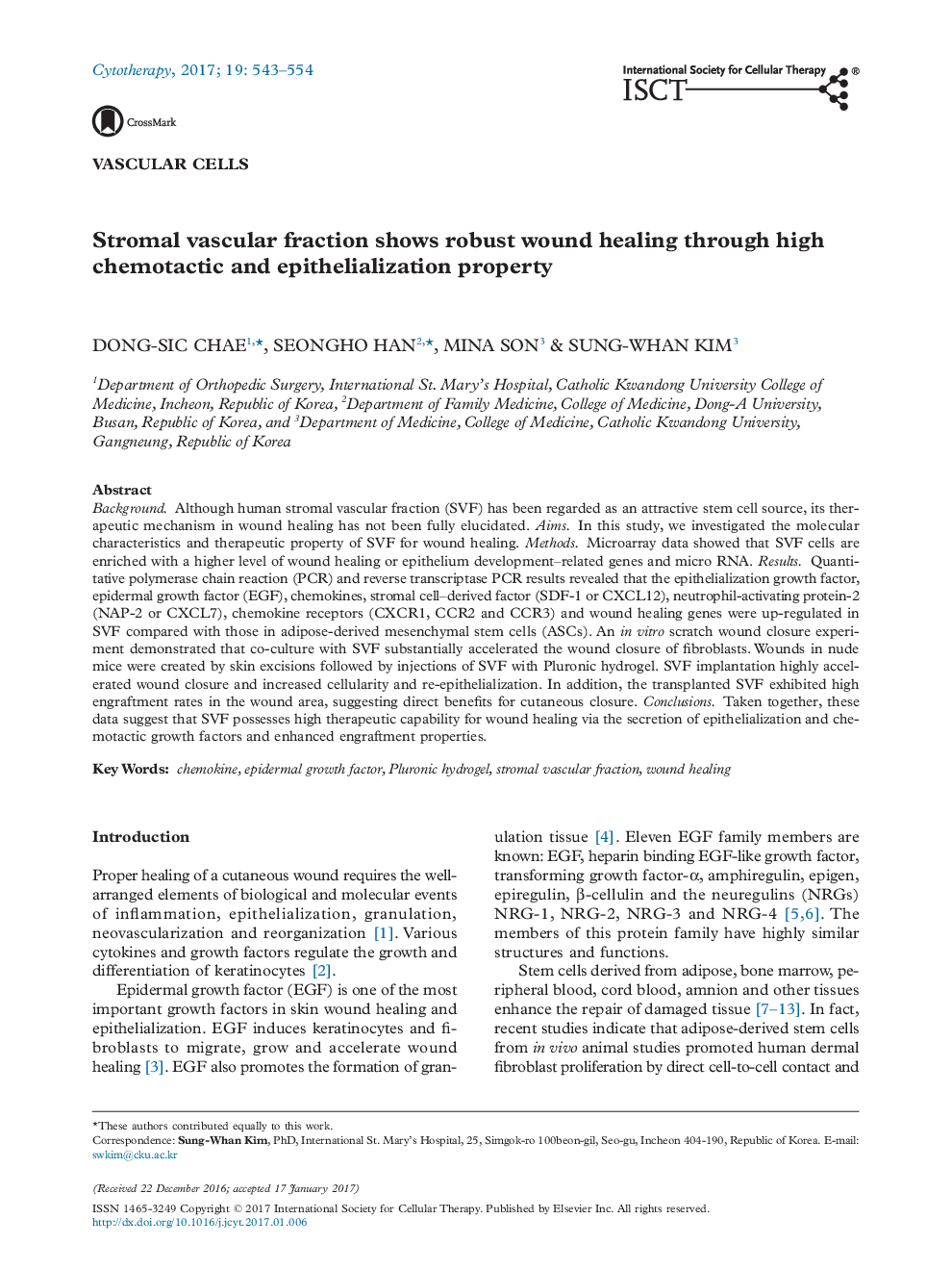| Article ID | Journal | Published Year | Pages | File Type |
|---|---|---|---|---|
| 5531445 | Cytotherapy | 2017 | 12 Pages |
BackgroundAlthough human stromal vascular fraction (SVF) has been regarded as an attractive stem cell source, its therapeutic mechanism in wound healing has not been fully elucidated.AimsIn this study, we investigated the molecular characteristics and therapeutic property of SVF for wound healing.MethodsMicroarray data showed that SVF cells are enriched with a higher level of wound healing or epithelium development-related genes and micro RNA.ResultsQuantitative polymerase chain reaction (PCR) and reverse transcriptase PCR results revealed that the epithelialization growth factor, epidermal growth factor (EGF), chemokines, stromal cell-derived factor (SDF-1 or CXCL12), neutrophil-activating protein-2 (NAP-2 or CXCL7), chemokine receptors (CXCR1, CCR2 and CCR3) and wound healing genes were up-regulated in SVF compared with those in adipose-derived mesenchymal stem cells (ASCs). An in vitro scratch wound closure experiment demonstrated that co-culture with SVF substantially accelerated the wound closure of fibroblasts. Wounds in nude mice were created by skin excisions followed by injections of SVF with Pluronic hydrogel. SVF implantation highly accelerated wound closure and increased cellularity and re-epithelialization. In addition, the transplanted SVF exhibited high engraftment rates in the wound area, suggesting direct benefits for cutaneous closure.ConclusionsTaken together, these data suggest that SVF possesses high therapeutic capability for wound healing via the secretion of epithelialization and chemotactic growth factors and enhanced engraftment properties.
